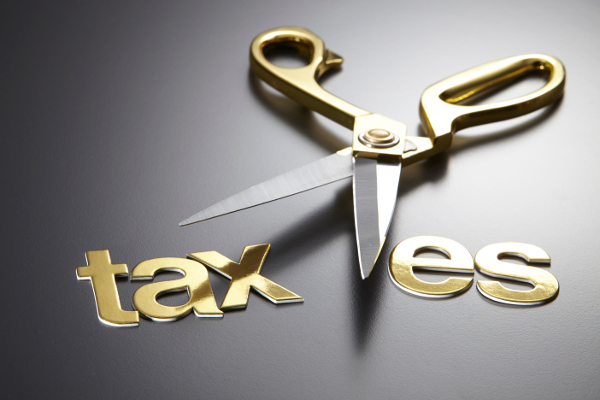Budget 2018: personal allowance to rise to £12,500 in April 2019
The basic tax-free personal allowance will rise to £12,500 and the higher rate to £50,000 in April nex…
29th October 2018 18:41
by Stephen Little from interactive investor
Share on
The basic tax-free personal allowance will rise to £12,500 and the higher rate to £50,000 in April next year.

Chancellor Philip Hammond announced he was bringing forward tax cuts a year earlier than planned in today’s Budget.
The basic tax-free personal allowance will rise to £12,500 and the higher rate to £50,000 in April next year.
The change means that taxpayers will be able to earn £12,500 before they have to start paying any income tax at all.
- Budget 2018: the winners and losers
Hammond says: “My idea of ending austerity does not involve increasing people’s tax bills. I didn’t come into politics to put taxes up.”
The Conservative Party had originally pledged to implement the increase by 2020, but the chancellor shifted this forward by one year.
The change will mean an annual tax saving of £130 for basic rate taxpayers, £860 for higher rate taxpayers and £600 for additional rate taxpayers in England and Wales.
Hammond says that the changes will give 32 million people a tax cut. A single parent on universal credit and working 25 hours a week on the national living wage will benefit by an additional £890 next year.
The current tax-free personal tax allowance is £11,850 for the basic rate; above this the income tax rate is 20% until your income hits £46,350.
All money is then taxed at 40% until it reaches £150,000, whereupon you are then taxed at 45%.
However, Deloitte warns that at £2.79 billion for the 2019/20 tax year it will prove a costly move for the chancellor.
Iain McCluskey, personal tax partner at PwC, says the chancellor’s scattering of a “fistful of cheap, light and airy” personal tax measures was more "tinkering than transformational".
He says: “This long-standing policy, a brainchild of the coalition government, has proven more resilient than its original political architects. With wage inflation of 2.7%, it should mean that those with average or better wage growth see the tax bands move with them.”
He adds: “However, the lowest paid taxpayers who earn less than the current personal allowance won’t see any benefit from this rise in these thresholds, and will reflect on whether a rise in the much lower National Insurance Contributions lower earnings limit would have been a better spending choice.”
- Budget 2018: Three pensions changes you may have missed
This article was originally published in our sister magazine Money Observer, which ceased publication in August 2020.
These articles are provided for information purposes only. Occasionally, an opinion about whether to buy or sell a specific investment may be provided by third parties. The content is not intended to be a personal recommendation to buy or sell any financial instrument or product, or to adopt any investment strategy as it is not provided based on an assessment of your investing knowledge and experience, your financial situation or your investment objectives. The value of your investments, and the income derived from them, may go down as well as up. You may not get back all the money that you invest. The investments referred to in this article may not be suitable for all investors, and if in doubt, an investor should seek advice from a qualified investment adviser.
Full performance can be found on the company or index summary page on the interactive investor website. Simply click on the company's or index name highlighted in the article.